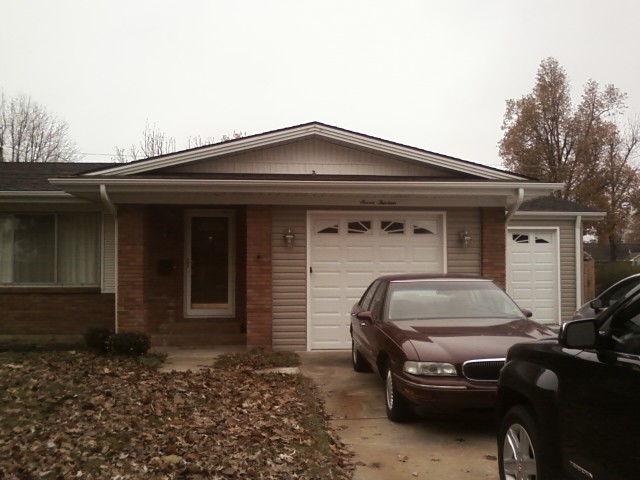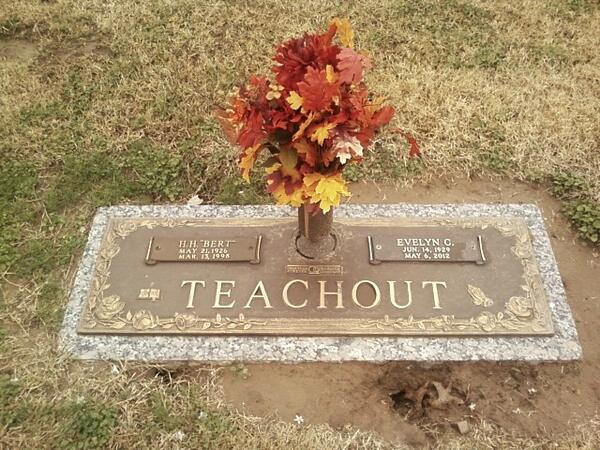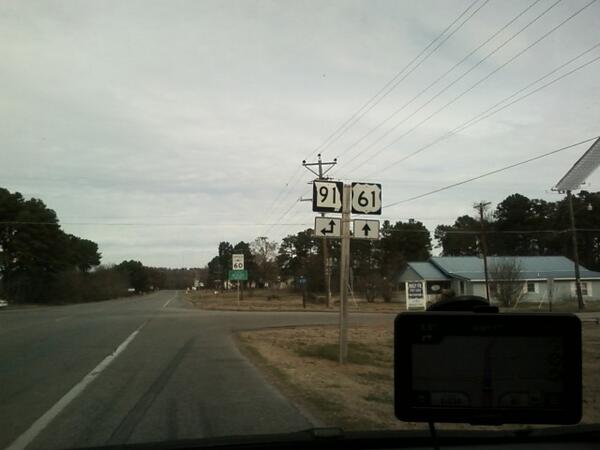When I pulled out of Kansas City last Thursday morning, I set my GPS–but I didn’t need it. I could have driven from downtown Kansas City to Smalltown, U.S.A., in my sleep. To be sure, many years have gone by since I last made that long drive, but no part of it has faded from my memory, and by the time I pulled into 713 Hickory Drive seven hours later, I was sure once again that it never will.
 I wrapped up my book tour for Duke: A Life of Duke Ellington with a pair of far-removed appearances, the first at the Kansas City Public Library and the second at the Miami International Book Fair. In between I had two free nights, and I decided to spend them visiting my brother and sister-in-law in Smalltown. I haven’t been back there since my mother’s funeral, and in the ensuing year and a half David and Kathy moved into her old house–the place where my brother and I grew up–and remodeled it. They did so, as I’ve said before in this space, with my blessing, for it meant as much to me as it did to them that 713 Hickory should not only stay in the family but remain alive and vital.
I wrapped up my book tour for Duke: A Life of Duke Ellington with a pair of far-removed appearances, the first at the Kansas City Public Library and the second at the Miami International Book Fair. In between I had two free nights, and I decided to spend them visiting my brother and sister-in-law in Smalltown. I haven’t been back there since my mother’s funeral, and in the ensuing year and a half David and Kathy moved into her old house–the place where my brother and I grew up–and remodeled it. They did so, as I’ve said before in this space, with my blessing, for it meant as much to me as it did to them that 713 Hickory should not only stay in the family but remain alive and vital.
Kathy regularly sent me snapshots of the remodeling process, and I felt very much a part of what they were doing. Still, I couldn’t help but wonder how it would feel to see the newly transformed house for the first time. Would it seem strange? Would it sting?
I was momentarily startled when I pulled into the driveway and saw that what had once been a carport was now an enclosed garage. For a half-century I’d entered the house not through the front door but through the carport, which led directly to the kitchen. Now it was closed off, and I had no idea what to do. I walked up to the front door and did something I’ve never done in my whole life: I rang the doorbell. Kathy appeared within seconds.
“Is this the entryway now, madame?” I said with mock grandeur.
“I forgot you wouldn’t know how to get in!” she said, laughing. “No, we still come in the back way. There’s a keypad by the garage door–I’ll show you how it works.” And so she did, and from that moment on I knew where I was.
 Yes, everything looks different at 713 Hickory now–but nothing has changed, not really. Even my mother still seems present, even though she now rests next to my father in the Garden of Memories Cemetery. Of all the things I said to David and Kathy that weekend, the phrase I repeated most often was She’d love this, you know. She would have, too, not because she wasn’t perfectly happy with the house the way it was–she loved it with all her heart–but because she would have been even happier to know that her two sons cared enough about 713 Hickory to want to keep it in the family.
Yes, everything looks different at 713 Hickory now–but nothing has changed, not really. Even my mother still seems present, even though she now rests next to my father in the Garden of Memories Cemetery. Of all the things I said to David and Kathy that weekend, the phrase I repeated most often was She’d love this, you know. She would have, too, not because she wasn’t perfectly happy with the house the way it was–she loved it with all her heart–but because she would have been even happier to know that her two sons cared enough about 713 Hickory to want to keep it in the family.
When you have only a day and a half to catch up with two people whom you love, you don’t spend much time going anywhere or doing anything out of the ordinary. We dined in on Thursday (Kathy cooked a roast) and went out on Friday (we checked out Smalltown’s brand-new steakhouse). We went to Jay’s, an old family hangout, for biscuits and gravy on Saturday morning. Kathy drove me around town to visit my parents’ grave and see the sights. Otherwise…well, we mostly just sat and talked.
James Agee captured the feel of our conversation in a prose poem about his childhood called “Knoxville: Summer of 1915”:
On the rough wet grass of the back yard my father and mother have spread quilts. We all lie there, my mother, my father, my uncle, my aunt, and I too am lying there. First we were sitting up, then one of us lay down, and then we all lay down, on our stomachs, or on our sides, or on our backs, and they have kept on talking. They are not talking much, and the talk is quiet, of nothing in particular, of nothing at all in particular, of nothing at all. The stars are wide and alive, they seem each like a smile of great sweetness, and they seem very near.
So, too, did my mother and father last weekend.
 After I cleaned my plate at Jay’s, I headed up Highway 61 to the St. Louis airport. A few hours later I was ordering room service in a Miami hotel, and the following night I was back home in Connecticut with Mrs. T. On Tuesday morning I drove up to Lenox, Massachusetts, there to take part in the first reading of my second play, Breaking and Entering, which is set in a semi-imaginary town called Apple Creek that is not at all unlike Smalltown, U.S.A.
After I cleaned my plate at Jay’s, I headed up Highway 61 to the St. Louis airport. A few hours later I was ordering room service in a Miami hotel, and the following night I was back home in Connecticut with Mrs. T. On Tuesday morning I drove up to Lenox, Massachusetts, there to take part in the first reading of my second play, Breaking and Entering, which is set in a semi-imaginary town called Apple Creek that is not at all unlike Smalltown, U.S.A.
No matter how far I travel, I never seem to get very far away from Smalltown. Or from 713 Hickory Drive.
* * *
Samuel Barber’s Knoxville: Summer of 1915, a musical setting of James Agee’s prose poem, performed by Dawn Upshaw, David Zinman, and the Orchestra of St. Luke’s:
